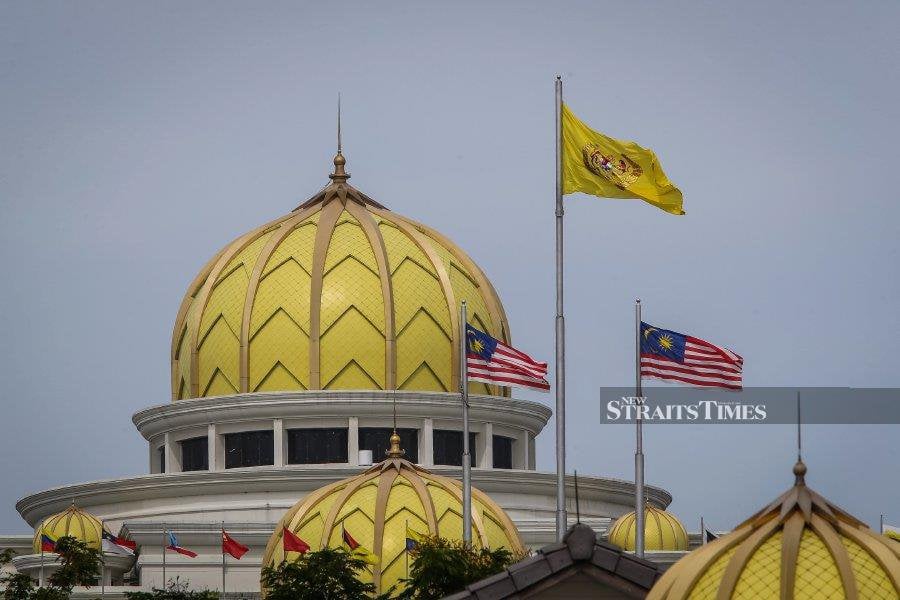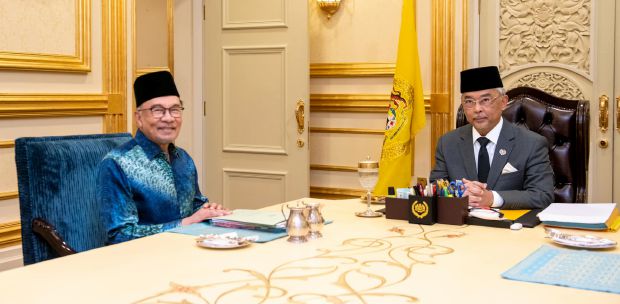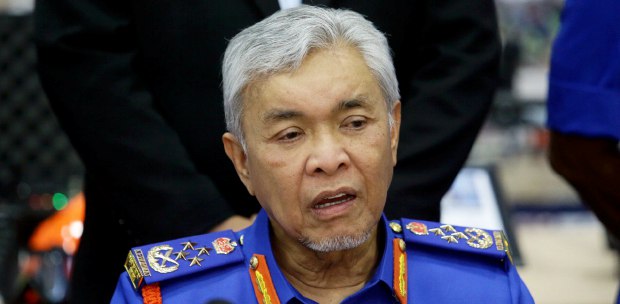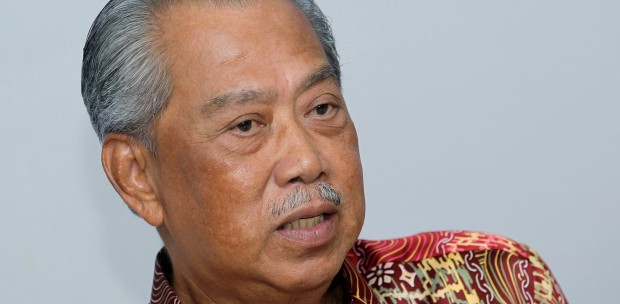OBSERVING the latest general election from afar and reading the initial declarations of all major political leaders, I could not be more surprised at the almost lightning speed through which they started claiming to have the "numbers" to become prime minister.
On the one hand, it is undeniable that the Constitution of the country provides for a certain level of vagueness and flexibility in the process of shaping a government in the aftermath of a general election.
On this regard, there are a lot of opinions on the level of discretion held by the Yang diPertuan Agong (YDPA).
Article 40(2) points out that the process of appointment of a new PM relies on such discretion that the YDPA possesses in assessing and judging the political situation.
Dian A.H. Shah and Andrew Harding writing for FMT argue that there is no such thing as "absolute discretion" and obviously the YDPA must decide based on factual evidence.
On the other hand, it is also true that a lot depends on the way the political class decides to undertake the complex process of negotiations among political parties especially when there is no a clear winner like in this case.
The latter point is being made by Shah and Harding and seems to frame the power and prerogative of the YDPA through the perspective of the political negotiations driven by the political parties.
"The Agong's role to appoint (as opposed to the more proactive role of "determining") is secondary to the political process among elected political elites to determine the matter of support," write the authors, both with the Centre for Asian Legal Studies, National University of Singapore.
Yet, despite not being a constitutional expert, this opinion seems weak to me because there should be an impartial arbiter to determine the outcome of an election, someone who is constitutionally empowered to make an independent judgment based on which a person must prove her or his votes.
It is granted that the Agong's judgement must be based on facts and evidence.
Here, there is a misunderstanding that must be clarified. Such decision-making process is only enabled by the Agong and not driven nor decided by him.
This does not make the Agong less powerful or at loss of credibility because, at the end of the day, it is the legislature who will decide. Rather the contrary.
What I mean is that there is nothing inherently wrong nor reason for shame if the Head of State appoints someone who eventually does not secure the majority.
The appointment of a PM does not necessarily determine the fact that this person would ultimately form the government.
Let's not forget: the members of parliament are the ones who decide on who will form a new government.
Shah and Harding fear that such a reading of the constitutional provisions might disprove the Agong in case the appointed PM does not muster sufficient numbers to win a vote of confidence.
"If an appointed candidate is later subjected to (and fails) a no-confidence vote in Parliament, this might suggest a serious misjudgment on the part of the head of state and it would undermine public confidence in the institution," explains the authors.
But, if we interpret the role of the Agong as an impartial arbiter who steers and enables and ensures the legitimacy of the entire process of government formation, such fear to blame the YDPA in case of an appointed PM failing to garner enough votes is unjustified.
As a consequence, in this hypothetical circumstance, there is nothing to suggest a "serious misjudgment" on the part of the Agong.
Interestingly, it's an opinion that at the end the experts from the National University of Singapore, also apparently agree upon.
"However, we suggest that if party leaders overestimate their support and, as a result, for example, lose a parliamentary vote of confidence which they had indicated they would win, then the embarrassment should be that of the party leaders in question, not that of the head of state."
In such an eventuality, the process will move ahead with the nomination of another PM in waiting that must prove her or his majority before the Dewan Rakyat.
Therefore, I find it shocking that, within just a few hours, some leaders were already claiming with outright conviction to possess the numbers to get appointed as PM.
What is happening is perhaps a sign that shows that there is still a long walk for political parties towards the maturity that is so indispensable for a true democratic system to thrive and prosper.
Perhaps, it is just convenient for the political leaders to read and interpret the entire process of government formation as basically of their own exclusive purview, relegating the role of the YDPA as just a nominal and powerless figurehead.
In this reading, the Head of State would just simply put a stamp of approval on whoever first shows up with a list of signatures allegedly demonstrating their support for the would-be PM nominee.
Because, the Constitution, the supreme law of the nation, appears to be open to different interpretations, the country should not just end up with a path to government formation that just suits fine the interest of the parties.
There should not be a rush among the leaders of political parties to prove first to have enough support.
Forming a government is not an 100m sprint competition but instead could be a 400m or 800m or 1,500m race or even a long marathon as it happens in other countries like Netherlands or Belgium.
In Italy and Israel, two nations famed for their frequent political crises and instability, Heads of State act truly as an impartial arbiter with power to guarantee that the process is fair and, those who have a real mandate, get nominated as the PM.
Article 40(2) explicitly refers to discretion of the Agong to appoint the PM. It's a process that certainly requires time and with a caretaker government in place, there is no reason why such a process should be hurried.
No matter how many declarations the heads of parties vying for power make, it is ultimately up to the Agong not only to make the initial call but also to decide the pace on how the whole process should unfold.
The author writes on civic engagement, youth development, the SDGs, human rights and regional integration in the context of Asia Pacific






